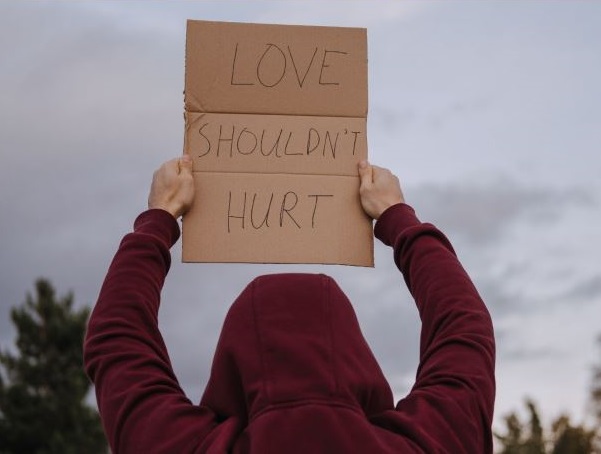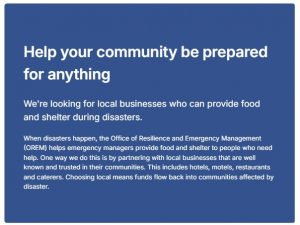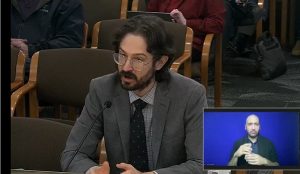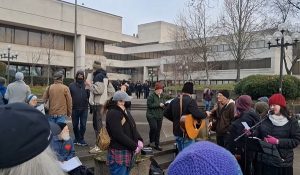Public comment: Survivor services are at risk
5 min read
Presenter: During public comment May 16 at the Oregon Commission for Women, three leaders raise the alarm on behalf of the Oregon Alliance to End Gender-Based Violence:
Shannon Rose (Oregon Sexual Assault Task Force): My name is Shannon Rose, I use she/her pronouns. I’m the executive director of the Oregon Sexual Assault Task Force. We’re a statewide organization, nonprofit working on addressing prevention and response to sexual violence across our state.
[00:00:24] I’m here with a couple of colleagues today on behalf of the Oregon Alliance to End Gender-Based Violence. We’ve been engaging and communicating with the joint commission, the subcommittee commission on domestic violence response. And were at a meeting yesterday to speak with those kind folks as well.
[00:00:41] We’re here today to talk about a true emergency and crisis issue with some funding bills for domestic and sexual violence service programs across the state.
[00:00:50] As I’m sure, it is no surprise to any of you that the revenue forecast came out, budgets are slim, there’s a lot of needs out there, and we know there’s going to be difficult decisions made.
[00:01:00] But what we’re facing as a community across the state of service providers for victims and survivors is a potential reduction in current services funding that would total just over $40 million if these bills are not passed and funded again.
[00:01:15] So there are a few that we’re going to talk about today:
- One is HB 3196, which would continue Victims of Crime Act funding (VOCA funding).
- One is HB 3070, which would continue funding for the SANE Certification Commission. SANEs are Sexual Assault Nurse Examiners.
- And one is POP #327, which is in the Department of Justice budget. And that POP funds the Oregon Domestic and Sexual Violence Services Fund, Survivor Housing Fund, and Child Advocacy Centers across the state.
[00:01:48] Together, if these funds are not continued, we would, it is no exaggeration to say, we would see programs that serve survivors shut down almost immediately. And particularly we’re seeing impacts in rural areas of the state where there are fewer sources of funding available to serve survivors.
[00:02:09] We’re seeing impacts on culturally-specific programs who have fewer funding sources often available to them. And so we wanted to come here today, I will wrap up and let my colleagues jump in, but I will just end with, we wanted to come here today basically to sort of raise the alarm on this issue with this Commission and ask for your support and assistance in advocating for these bills and these funds in the budget-making process at the legislature.
[00:02:34] Rachel Schutz (Family Justice Center): My name is Rachel Schutz and I’m the executive director of the Family Justice Center in Washington County. We are an umbrella organization that provides a single location for accessing victim services in Washington County. I wanted to appear today for the same reasons that Shannon did.
[00:02:53] So thank you for hearing her testimony on the funding bills. We are extremely concerned about the ecosystem of victim services in and around our state. The piece that I will add is that it is no surprise to you that this is an issue that impacts a vast swath of Oregonians.
[00:03:18] It is 42% of women that experience domestic violence in Oregon, 54% of women experience sexual assault. In the past 10 years, we’ve had 578 domestic violence homicides. And so this is a real concern if there are to be big funding cuts to victim services in the state.
[00:03:42] And these cuts wouldn’t just impact domestic and sexual violence. They would also impact child abuse services. They would impact services coming out of district attorneys’ offices for crime victims. They would impact services for campus prevention services and campus response services in colleges for domestic and sexual violence.
[00:04:05] So this is really a huge concern that we have because as the state studied in 2023, with their report from the secretary of state’s office on the state of domestic violence in Oregon, one of the leading stressors in the state around these very high rates is the disconnected and lack of funding for the services that are needed in order to intervene in these circumstances.
[00:04:41] What we know about domestic and sexual violence and child abuse is that they are cycles and they are cycles that can self-sustain themselves and trickle down and throughout our community.
[00:04:56] But what is always the case that we need to hold in our mind is that these are not small populations. These are a majority of Oregonians that are experiencing this.
[00:05:06] And so cuts to the upstream prevention of violence and abuse, and then also the response to that violence and abuse then exacerbates systems within Oregon that are already under an incredible amount of strain, such as our education system, our health care system, and more.
The math says that each one of these survivors costs the community over $390,000 per person.
[00:05:35] And so to cut the $40 million investment to victim services in the state of Oregon, which is only providing that base level of services that are necessary, not the level that the secretary of state audit found was necessary to start making a dent in the high population that we are seeing, would be catastrophic and detrimental.
[00:06:01] And so like Shannon said, we are here to ask for the support of the commission in ensuring that these funding resources remain stable through this biennium.
[00:06:12] Emmy Ritter (Raphael House): My name is Emmy Ritter. I’m the executive director of Raphael House of Portland. I use she/her pronouns.
I don’t have much more to add than my colleagues brought to the table. Shannon and Rachel really spoke to the urgency we are seeing and the concern. And I see many champions of gender violence work in this room. So I feel your support already by just by seeing your faces.
[00:06:38] The other piece to this is your voices, in concert with the voices of victims’ advocates who have been very vocal and present in the legislature, will be truly impactful.
[00:06:53] Any kind of collaboration you want to do with us, we are very open and excited for. Yeah, I don’t have much else to state. Our services can’t be in jeopardy if we are going to continue to serve survivors throughout the state—children, sex trafficking survivors, sexual assault survivors, and domestic violence survivors. Thanks for your time. I just wanted to be another voice in this urgent call.
[00:07:21] Presenter: During public comment May 16 at the Oregon Commission for Women, advocates draw attention to $40 million of critical funding. Without that funding, they say, programs serving survivors would shut down almost immediately.
This story produced by John Q for Whole Community News, KEPW 97.3, Eugene’s PeaceWorks community radio.







